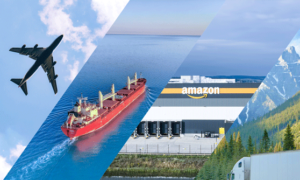China freight forwarder to Spain
Shipping goods from China to Spain can be a complex and costly process, especially if you are not familiar with the logistics and regulations involved. That is why it is crucial to choose the right China freight forwarder for your business needs. A freight forwarder is a company that arranges the transportation of goods from one place to another, using various modes of transport such as air, sea, rail, or road. A good freight forwarder can help you save time, money, and hassle by handling the paperwork, customs clearance, insurance, warehousing, and delivery of your cargo.
However, not all freight forwarders are created equal. There are many factors to consider when choosing a freight forwarder, such as their experience, reputation, services, pricing, customer support, and compliance. In this article, we will guide you through the steps of researching, shortlisting, evaluating, and selecting the best China freight forwarder for shipping to Spain.
Factors to Consider When Choosing a Freight Forwarder

Before you start looking for a freight forwarder, you need to have a clear idea of your shipping requirements and expectations. Some of the factors to consider are:
- The type and volume of goods you want to ship. Different goods may have different packaging, handling, and transportation needs. For example, if you are shipping perishable, fragile, or hazardous goods, you may need a freight forwarder that specializes in these types of cargo and has the necessary equipment and facilities to ensure their safety and quality. You also need to know the volume and weight of your goods, as this will affect the mode of transport and the cost of shipping.
- The origin and destination of your goods. You need to know the exact location of your supplier in China and your buyer in Spain, as well as the preferred ports or airports for loading and unloading. This will help you find a freight forwarder that has a strong network and presence in both countries and can offer you the best routes and transit times. You also need to be aware of the customs regulations and duties in both countries, as these may vary depending on the type and value of your goods.
- The budget and timeline of your shipment. You need to have a realistic estimate of how much you are willing to spend and how fast you want your goods to arrive. This will help you choose the most suitable mode of transport and service level for your shipment. For example, if you are shipping urgent or high-value goods, you may opt for air freight, which is faster but more expensive than sea freight. If you are shipping large or bulky goods, you may choose sea freight, which is cheaper but slower than air freight. You also need to consider the additional costs and delays that may arise from customs clearance, warehousing, and delivery.
Researching and Shortlisting Potential Freight Forwarders
Once you have defined your shipping needs and goals, you can start researching and shortlisting potential freight forwarders that can meet them. There are several ways to find freight forwarders, such as:
- Asking for referrals from your suppliers, buyers, or industry peers. This is one of the easiest and most reliable ways to find a freight forwarder, as you can get first-hand feedback and recommendations from people who have used their services before. You can also ask them about their experience, satisfaction, and any issues or challenges they faced with the freight forwarder.
- Searching online directories and platforms. There are many online directories and platforms that list and compare freight forwarders based on various criteria, such as location, mode of transport, service type, rating, and reviews. You can use these tools to filter and narrow down your options and get an overview of their features and benefits. Some examples of these platforms are Freightos, Freightnet, and Shipa Freight.
- Contacting trade associations and organizations. There are many trade associations and organizations that represent and regulate the freight forwarding industry, such as the International Federation of Freight Forwarders Associations (FIATA), the China International Freight Forwarders Association (CIFA), and the Spanish Association of Freight Forwarders (FETEIA). You can contact these entities and ask for their list of members or accredited freight forwarders. You can also check their websites and publications for news, updates, and best practices in the industry.
After you have gathered a list of potential freight forwarders, you can shortlist them based on your specific criteria and preferences. You can also contact them and request for quotes, brochures, or proposals to get more information about their services and pricing.
Evaluating the Reliability and Reputation of Freight Forwarders

The next step is to evaluate the reliability and reputation of the freight forwarders you have shortlisted. This is important because you want to work with a freight forwarder that is trustworthy, professional, and competent. Some of the ways to evaluate the reliability and reputation of freight forwarders are:
- Checking their credentials and certifications. You want to make sure that the freight forwarder you choose is licensed and authorized to operate in both China and Spain, and complies with the relevant laws and regulations. You can check their credentials and certifications on their websites, or ask them to provide proof of their registration, license, insurance, and membership in trade associations or organizations. You can also verify their credentials and certifications with the issuing authorities or entities.
- Reading their reviews and testimonials. You want to get a sense of how the freight forwarder performs and delivers on their promises, and how satisfied their customers are with their services. You can read their reviews and testimonials on their websites, social media, or online platforms, or ask them to provide references or case studies of their previous or current clients. You can also contact their clients and ask them about their experience, feedback, and any issues or challenges they faced with the freight forwarder.
- Assessing their track record and experience. You want to know how long the freight forwarder has been in business, how many shipments they have handled, and how familiar they are with your industry and market. You can ask them to provide data and statistics on their volume, frequency, and success rate of shipments, as well as examples of their previous or current projects that are similar to yours. You can also ask them about their expertise and knowledge of the customs regulations, duties, and documentation in both China and Spain, and how they handle any problems or disputes that may arise during the shipping process.
Understanding the Services Offered by Freight Forwarders

Another factor to consider when choosing a freight forwarder is the range and quality of services they offer. You want to work with a freight forwarder that can provide you with a comprehensive and customized solution that meets your shipping needs and expectations. Some of the services offered by freight forwarders are:
- Transportation and logistics. This is the core service of freight forwarders, which involves arranging and managing the transportation of your goods from the origin to the destination, using various modes of transport such as air, sea, rail, or road. You want to choose a freight forwarder that can offer you the best options and solutions for your type, volume, and value of goods, as well as your budget and timeline. You also want to choose a freight forwarder that has a strong network and partnership with reliable carriers, operators, and agents in both China and Spain, and can ensure the safety, security, and efficiency of your shipment.
- Customs clearance and brokerage. This is another essential service of freight forwarders, which involves handling the paperwork, documentation, and procedures required for clearing your goods through the customs authorities in both China and Spain. You want to choose a freight forwarder that has a thorough understanding and experience of the customs regulations, duties, and requirements in both countries, and can help you avoid any delays, penalties, or fines. You also want to choose a freight forwarder that has a good relationship and communication with the customs officials and agencies in both countries, and can resolve any issues or disputes that may arise during the customs clearance process.
- Warehousing and distribution. This is an optional service of freight forwarders, which involves storing, packing, labeling, and delivering your goods to your buyer or end-user. You may need this service if you are shipping large or bulky goods, or if you want to consolidate or split your shipment. You want to choose a freight forwarder that has access to secure and convenient warehousing and distribution facilities in both China and Spain, and can offer you flexible and cost-effective solutions for your warehousing and distribution needs. You also want to choose a freight forwarder that has a good inventory and order management system, and can provide you with real-time tracking and visibility of your goods.
Comparing Pricing and Cost-Effectiveness

One of the most important factors to consider when choosing a freight forwarder is the pricing and cost-effectiveness of their services. You want to work with a freight forwarder that can offer you competitive and transparent pricing, and can help you save money and optimize your shipping costs. Some of the ways to compare pricing and cost-effectiveness of freight forwarders are:
- Requesting and comparing quotes. You want to request and compare quotes from at least three to five freight forwarders, and make sure that they include all the fees and charges involved in the shipping process, such as transportation, customs, warehousing, insurance, and handling. You also want to make sure that the quotes are based on the same specifications and conditions, such as the type, volume, and value of your goods, as well as your budget and timeline. You also want to check the validity and expiry of the quotes, and the terms and conditions attached to them. You can use online platforms or tools to request and compare quotes from multiple freight forwarders, such as Freightos, Freightnet, and Shipa Freight.
- Analyzing the cost breakdown and hidden fees. You want to understand how the freight forwarder calculates and charges their fees, and what factors may affect the final cost of your shipment. You also want to be aware of any hidden fees or surcharges that may be added to your invoice, such as fuel, security, documentation, or currency adjustment fees. You can ask the freight forwarder to provide you with a detailed and itemized cost breakdown, and explain any fees or charges that are unclear or unfamiliar to you.
- Negotiating and optimizing the cost. You want to get the best value and service for your money, and avoid paying more than you need to. You can negotiate and optimize the cost of your shipment by asking the freight forwarder for discounts, incentives, or special offers, such as volume discounts, loyalty programs, or seasonal promotions. You can also optimize the cost by choosing the most efficient and economical mode of transport and service level, consolidating or splitting your shipment, reducing the packaging and weight of your goods, and avoiding peak seasons or rush hours.




